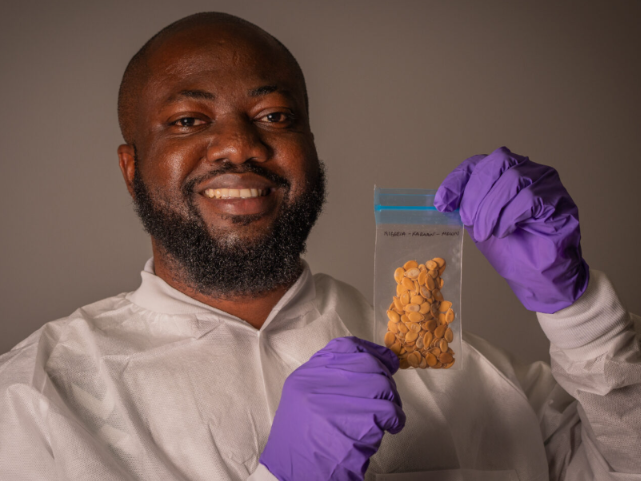In a groundbreaking moment for Nigeria and West Africa, a seed native to Oyo State is making its way to space aboard a NASA mission. The egusi melon seed, long cherished in Nigerian cuisine, is now set to become the first West African crop to orbit Earth. The launch to the International Space Station is scheduled for July 31, 2025.
This historic mission is spearheaded by Nigerian space scientist Dr. Temidayo Oniosun, in collaboration with global space organizations. The project aims to explore how the egusi seed responds to space conditions such as microgravity. Scientists will examine its germination process, lipid metabolism, stress tolerance, and gene expression under zero-gravity environments.
Once the seed returns to Earth in early August, it will undergo detailed laboratory testing. Researchers will use spectral imaging and in vitro analysis to understand how spaceflight may have affected its growth characteristics. The study is expected to offer insights into the potential of African crops to support food systems in space missions and extreme environments.
Beyond its scientific objectives, the mission is deeply symbolic. For many Nigerians, egusi is more than just food—it represents cultural identity. Sending it to space is a gesture of pride and a statement that indigenous knowledge and local agriculture have a place in advanced global research.
Dr. Oniosun noted that seeing an everyday Nigerian food item make it to space is a powerful way to connect people with science. He hopes it will spark curiosity in young minds and encourage more interest in STEM fields, especially among African youth.
Egusi was chosen not only for its cultural value but also for its resilience. Known for thriving in poor soil and surviving under dry conditions, the seed is ideal for studies on sustainable agriculture. It holds promise for future food security in both Earth-based and extraterrestrial farming systems.
As the launch nears, the egusi seed will join other culturally significant crops from countries like Egypt, Pakistan, and Armenia in a multinational experiment celebrating agricultural diversity. Each seed will contribute to a broader understanding of how traditional crops adapt to space environments.
When the egusi seed returns, it will mark more than a scientific milestone—it will be a moment of national celebration. It reinforces Nigeria’s growing presence in space science and highlights the global relevance of African agriculture. The journey of this humble seed is a powerful reminder that innovation can grow from tradition, and that local crops have a place on the world’s biggest scientific stages.
















